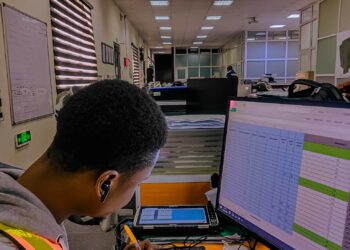The recently released 2025 WASSCE results have sent ripples of concern across Nigeria’s education landscape. With only 38.32% of candidates securing credit passes in five subjects including English and Mathematics—the lowest in a decade—it is clear that this is more than a statistical dip. It is a wake-up call.
WAEC’s head of national office, Dr Amos Dangut, attributes this drastic decline to the introduction of new anti-malpractice measures such as serialised objective papers and the partial rollout of Computer-Based Testing (CBT). While these reforms are commendable and long overdue, they also expose systemic weaknesses in our educational framework—weaknesses we can no longer afford to ignore.
At the heart of the matter lies a foundational crisis. Too many of our public schools are crippled by inadequate infrastructure, poor teacher quality, and a learning environment that is anything but conducive. While digital transformation is the future, many students—especially in underserved communities—simply do not have the digital literacy or exposure required to navigate CBT-based assessments successfully.
Instead of placing sole blame on students or defending procedural changes, our education authorities must now pivot towards building resilience into the system. This begins with massive investment in teacher training and remuneration, a national review of school infrastructure, and consistent access to learning materials, both physical and digital. We must also regulate the fast-growing ecosystem of online “expo” platforms that continue to compromise exam integrity.
Moreover, curriculum reform should shift towards building foundational literacy and numeracy skills from the early years. Many secondary school students today struggle with basic reading and writing—not because they lack potential, but because the system failed them at the foundational stage. We must not expect miracles at the point of terminal examinations if we neglect the basics at the beginning.
The proposed full transition to CBT for WASSCE by 2026 is ambitious and potentially transformative, but without urgent attention to infrastructure, teacher preparedness, and student support systems, it may become yet another well-intended policy marred by poor execution.
For those who succeeded in this year’s exams—especially under such difficult conditions—congratulations. Your resilience is commendable. But for policymakers, school administrators, and educators, this result should not simply be an annual statistic. It should be a national emergency.
The decline in performance is not just about grades. It reflects our collective failure—and the urgent need for reform. The future of millions of Nigerian learners depends on what we do next.



















































































 EduTimes Africa, a product of Education Times Africa, is a magazine publication that aims to lend its support to close the yawning gap in Africa's educational development.
EduTimes Africa, a product of Education Times Africa, is a magazine publication that aims to lend its support to close the yawning gap in Africa's educational development.